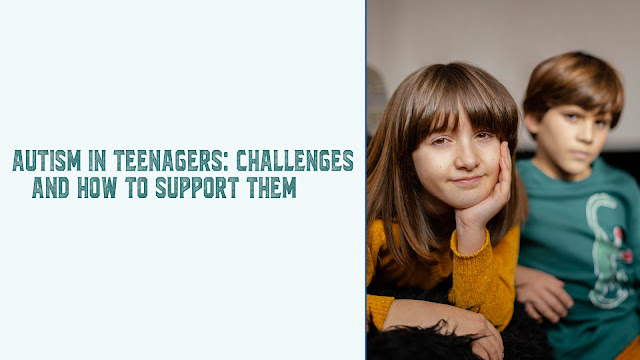The teenage years are a time of rapid change — physically, emotionally, and socially. For teenagers on the autism spectrum, these changes can bring unique challenges that require understanding, support, and patience. Whether you're a parent, teacher, or caregiver, knowing how to help an autistic teen navigate this stage can make a world of difference.
🧠 What Makes the Teenage Years Different for Autistic Teens?
Teenagers on the spectrum experience many of the same things as their neurotypical peers: identity exploration, peer pressure, and increasing independence. However, they may also struggle with:
-
Sensory Overload in crowded school settings or social events
-
Increased Anxiety due to changes in routine or social expectations
-
Difficulty with Social Cues, leading to feelings of isolation
-
Self-awareness of Differences, which can affect self-esteem
-
Executive Function Challenges, such as managing homework or time
Understanding these hurdles can help create a more compassionate and effective support system.
🔍 Common Challenges Autistic Teens Face
Here are some of the most common issues autistic teens deal with — and how you can help:
1. Social Isolation
Autistic teens may struggle to make or maintain friendships due to difficulties reading social cues, sarcasm, or body language.
Support Tip:
Encourage small, structured social opportunities like clubs, shared-interest groups, or one-on-one hangouts. Social skills groups led by a therapist can also help.
2. Sensory Sensitivities
Loud school environments, bright lights, or certain textures can cause distress.
Support Tip:
Help your teen identify sensory triggers and find calming tools such as noise-canceling headphones, fidget tools, or quiet spaces at school.
3. Bullying
Unfortunately, many autistic teens are at a higher risk for bullying.
Support Tip:
Stay in close communication with teachers and school staff. Teach your teen self-advocacy skills and encourage them to speak up when something feels wrong.
4. Mental Health Struggles
Anxiety, depression, and autistic burnout are common during the teen years.
Support Tip:
Normalize therapy and mental health care. Cognitive Behavioral Therapy (CBT) adapted for autism can be especially helpful.
5. Identity & Self-Acceptance
Autistic teens may struggle with understanding who they are in a world that doesn't always feel accepting.
Support Tip:
Introduce them to autistic role models, blogs, books, and videos. Help them understand that being autistic is not a flaw, but a different way of experiencing the world.
🛠️ Practical Ways to Support an Autistic Teen
-
Build Routines Together: Involve them in creating a schedule that provides structure but allows flexibility.
-
Promote Independence: Start teaching life skills like cooking, budgeting, or public transportation use early.
-
Practice Open Communication: Create a judgment-free zone where they feel safe expressing thoughts and concerns.
-
Celebrate Wins: Big or small — whether they gave a class presentation or just made a new friend.
-
Advocate Together: Encourage self-advocacy but be ready to step in when needed, especially with schools or healthcare systems.
❤️ Final Thoughts
Every autistic teen is different, and there’s no one-size-fits-all approach. The key is to listen, learn, and grow with them. With the right tools and support, autistic teenagers can thrive during these transformative years — and beyond.
🌟 Do you have a story about parenting or supporting an autistic teen? Share it with us in the comments below! Let’s build a community of empathy and encouragement.

Comments
Post a Comment